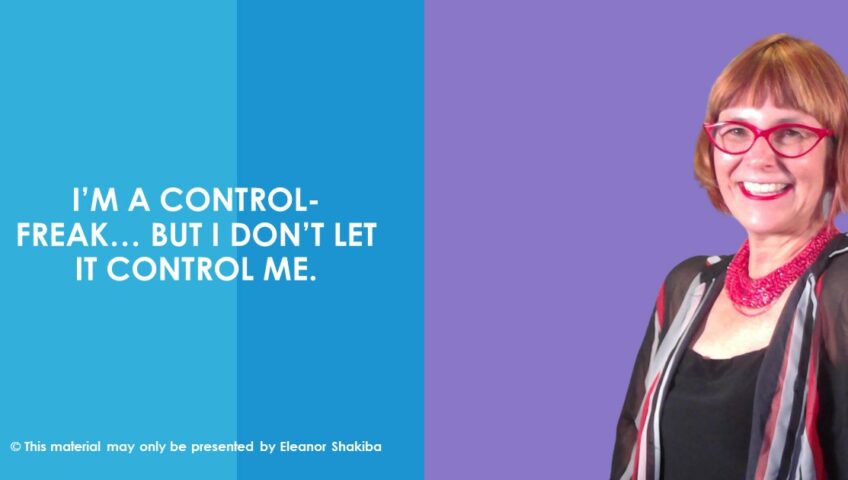Time to come clean. I’m a control freak. And I’m not the only one! In times of uncertainty, many people react by trying to regain control. But that’s not a healthy way to lead yourself, your team or your business.
So, how can you tell that your ‘organised mindset’ is actually a sign that you’re in full-blown control freak mode? Here are three signs that are dead give-aways.
1. You’re stressing out about people knowing you’re stressing out
Yep, you’re not the only one who does this! It’s a surprisingly common way of thinking among people with imposter syndrome, a distorted, unhelpful form of ‘metacognition’.
2. You believe you are 100 percent responsible for your own success
You give yourself no leeway. If something goes wrong, you scold yourself. Then you start working on making it go right again. You say things like “failure isn’t an option” and “there’s no such thing as good enough”. You over-schedule, over-commit and over-work. And still, you want to achieve more.
No. It’s not ambition or a good work ethic. It’s a sign your confidence very likely needs a reboot.
3.Your self-compassion battery is totally flat
Self-compassion is a form of support and nurturing you give yourself when you make mistakes, face embarrassing situations or encounter adversity. It’s like a battery; when it’s low, you don’t have the energy to enjoy your life. But it can be recharged – and there are good reasons to keep it fully charged.
Paul Gilbert is a research scientist who studies the neuroscience of self-compassion. He claims that three brain systems work together to help you handle adversity and survive in chaotic times. Your ‘mammalian care-giving system’ is one of these systems. When it’s outward-facing, it enables you to feel, and show, compassion for those around you. But it can also be inward-facing. In this case, your care-giving system promotes a sense of self-security and stability. To find out more about the implications of Paul Gilbert’s work for beating imposter syndrome and building confidence in my recent blog article.
